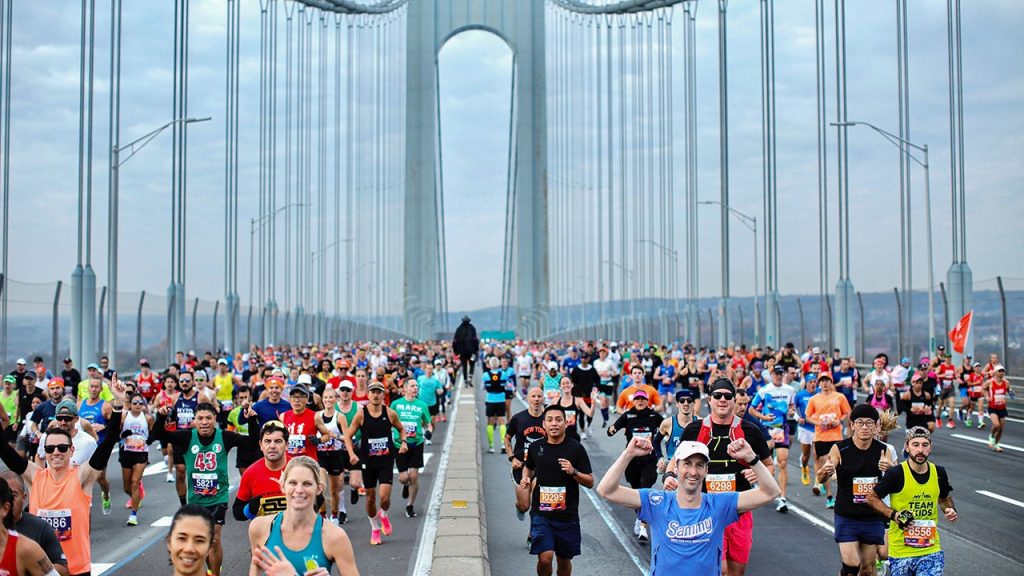The Metropolitan Transportation Authority (MTA) is demanding the organizers of the New York City Marathon pay $750,000 to cover lost toll revenue from shutting down the Verrazano-Narrows Bridge. If the New York Road Runners, who organize the marathon, do not pay, they may be restricted to only using the lower deck of the bridge, reducing the participant pool for the race this year. Negotiations have been tough, with the MTA insisting on full reimbursement for lost revenue, while the NYRR argue that using only one level of the bridge will decrease entrants and prolong the race, requiring more street closures. The organization has asked Gov. Kathy Hochul to intervene and urge the MTA to negotiate in good faith.
The New York Road Runners have agreed to increase their payment to the MTA to $200,000 for this year’s race, up from $150,000 paid last year. They have also proposed purchasing advertising on subways and buses to further compensate the MTA for lost toll revenue. The NYRR argue that the marathon has a significant impact on the state and city economy, bringing in over one million spectators and 50,000 runners to the streets of New York City each year. The organization reported a total income of $100.2 million last fiscal year, with $85 million in revenue in 2022, highlighting their financial contribution to the city.
The MTA’s demand for payment from the NYRR comes amid controversy surrounding the agency, as they recently approved a congestion pricing plan that will impose a $15 toll on drivers entering Midtown Manhattan below 60th street. This decision has sparked widespread debate among city-goers, with the MTA asserting that increased tolls will generate the billions needed to upgrade transit and railroad systems. The situation with the marathon payment adds to public scrutiny of the MTA’s financial decisions and negotiation tactics.
The New York City Marathon is not only a prestigious race for elite runners, but also an opportunity for thousands of participants to raise money for charitable causes. With an expected 50,000 participants this year, the NYRR stress the importance of using both levels of the Verrazano-Narrows Bridge for the race. They argue that being limited to one level will negatively impact entrants and extend the race, necessitating longer closures of streets and bridges throughout the five boroughs. The organization has urged Gov. Hochul to intervene on their behalf in negotiations with the MTA.
Internal memos obtained by the New York Times reveal the MTA’s stance on the issue, with Catherine Sheridan, president of MTA Bridges and Tunnels, stating that taxpayers should not subsidize a wealthy organization like the NYRR. The MTA has expressed willingness to continue working towards an agreement with the NYRR as long as it leads to full reimbursement for lost revenue. The financial negotiations between the two entities reflect broader tensions over funding and resource allocation in the city’s transportation infrastructure.
The New York Road Runners have been in dialogue with the MTA regarding the fee for using the Verrazano-Narrows Bridge for the marathon, with CEO Rob Simmelkjaer highlighting the organization’s willingness to increase payments while requesting the MTA negotiate in good faith. Despite the NYRR’s offer to pay more and provide additional compensation through advertising, the MTA remains steadfast in seeking full reimbursement for lost toll revenue. The outcome of these negotiations will not only impact the logistics of the marathon this year but also shed light on the complexities of managing financial agreements between private entities and public transportation authorities.


